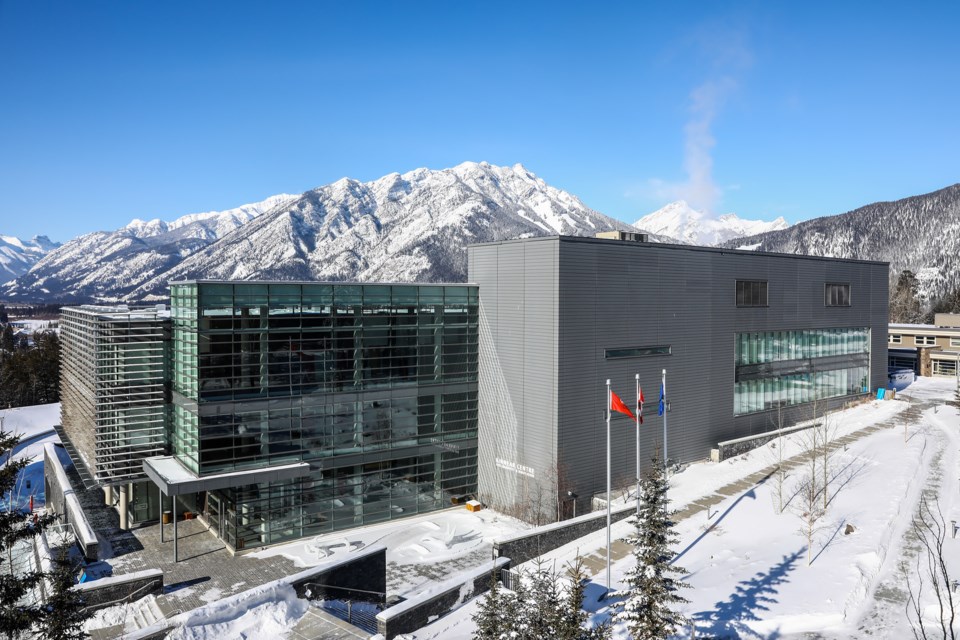BANFF – At the Banff Centre for Arts and Creativity the ongoing COVID-19 pandemic has forced an alternative approach to regular programming.
In light of restrictions to in-person gatherings, the winter 2021 calendar has been released in artistic and leadership disciplines with a focus on virtual participation.
“We feel it is important to continue to provide world-class educational and training opportunities for artists and leaders in our unique Banff Centre model,” said vice-president of arts and leadership programming Howard R. Jang.
“We can create moments of connection, and foster artistic and leadership practices across all disciplines, even in this period of isolation, and that means the world to us.”
The winter options available online follow a successful fall 2020 Arts and Indigenous Leadership programs list that received favourable evaluations from participants. The Banff Centre reports that 95 per cent of respondents said they were “satisfied” or “very satisfied” with their online experience, and 86 per cent rated the relevance of their program as “very good” or “excellent.”
The new online format, while continuing to be a work in progress, is delivering positive results.
“I feel like we’re getting it right in terms of the way we’re doing it,” Jang said. “I’m really proud of the way the team has responded, and I’m so pleased with the way the community has responded. Every program has been oversubscribed. We can’t actually accommodate all the people who apply, which also gives us a good sense that there’s need out there.”
The winter programs that are in progress, or have already full booked, include an Adventure Filmmakers Workshop, a Winter Writers Session and a Spring Writers Retreat.
The Leading Teams: Governance for Indigenous Councils and Boards program is fullt and on wait-list only status, and a Negotiation Skills Training Session in March is open for applications until Feb. 22. The deadline for the BAIR Emerging Visual Artists Intensive is Feb. 15.
The challenge of shifting to an online format cannot be understated. A big part of the Banff Centre model has been to come to the mountain town as part of the educational experience, and while online engagement has been a focus in the past, delivering distance programming is a significant step to take in a short time.
Building a relationship with Athabasca University, an institution with vast experience in distance learning, has helped ease the growing pains.
“That was a really critical partnership that helped us understand the intricacies of things you need to consider around training faculty and working with students in that environment,” Jang said.
Through all of the changes, the focus at the Banff Centre remains on the people who sign up for programs. The inherent challenges of being an artist in today’s world are not insignificant, plotting a course through a pandemic on top of that, is an added burden.
“Our change is very much associated with our understanding of what their needs are in terms of how to navigate this current world as well as what the future looks like for them in order to engage with the community” Jang said. “We’re in this period of time where we’re all trying to get a sense of what the horizon looks like.”
In addition to the online offerings, a new, one-time In-Situ Leighton Residency program has also been introduced to advance projects that would normally take place on campus, but had to be postponed due to COVID-19 concerns. Eight artists through five projects in a variety of artistic disciplines will benefit from $10,000 of support in each project.
One silver lining that has emerged from the current situation is people who would not normally look to the Banff Centre are now accessing opportunities previously unavailable to them.
“We’ve increased our accessibility, particularly with people from around Canada, which has been really great to see,” Jang said. “And we’ve expanded our demographics quite significantly, particularly in the Indigenous community.”
Taken as a whole, making the transition into an online presence was a necessary step that required a new way of thinking about what the Banff Centre experience was all about, at least for now.
“A phrase that you might hear a lot these days is ‘developing a community of practice,’ ” Jang said. “What that means to us is we are now creating a larger community that’s more fully engaged with each other on a longer-term, ongoing basis. That’s going to happen in an online environment. We’re helping to create those communities of practice in the delivery of all of our programs.”
It is hoped that by early 2022, in-person learning will return to the Banff Centre. At that time the organization expects to be well positioned to offer multiple paths toward artistic and leadership skill development, both on campus in Banff, and online to the rest of the world.
Visit banffcentre.ca for more information on winter programs at the Banff Centre for Arts and Creativity. Programs for spring and summer 2021 are also currently in development and will be announced soon.




